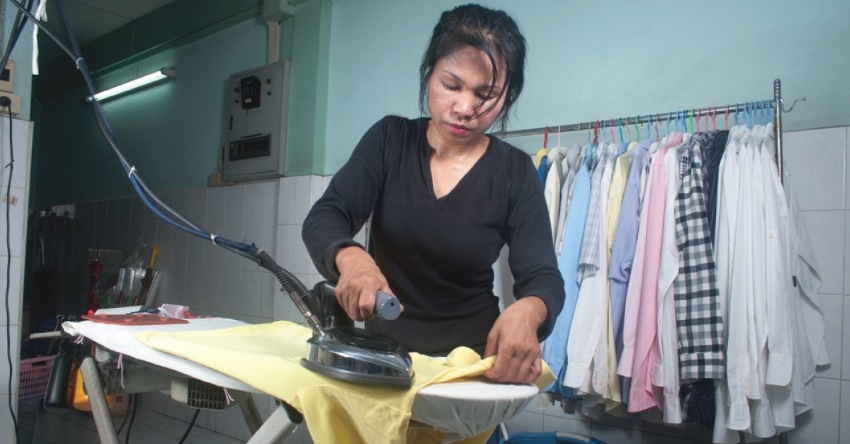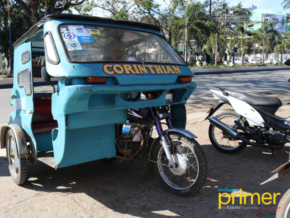Expats’ Guide: Kasambahay Law (Domestic Workers Law)
It’s been over 3 years since Republic Act (R.A.) 10361, knows as the “Domestic Workers Act” or the “Batas Kasambahay,” was enacted, yet people are still confused about some (if not most) of the terms.
Here’s a guide for you to understand R.A. 10361:
What and Why
The Domestic Workers Act is an act that covers the protection and welfare of domestic workers, who have long been a part of Filipino culture. It’s been in Congress for 16 years, and is seen as a landmark law that strengthens respect, protection, and promotion of the rights and welfare of domestic workers or kasambahay in Filipino.
What is a “Kasambahay”

A TYPICAL KASAMBAHAY. They should always be treated with respect since they practically keep you and your house going while you’re at school or work, but they should also respect you. The Kasambahay Law is here to make sure that happens. (Image grabbed from Official Gazette)
The law defines a kasambahay as one of the following:
• General househelp, otherwise known as katulong
• Nursemaid or yaya
• Cook
• Gardener
• Laundry person
• Any working children or domestic workers 15 years or older but not over the age of 18
• Anyone who regularly performs domestic work in one household on an occupational basis, also known as a live-out arrangement
The following, however, are not considered as kasambahay:
• Service providers
• Family drivers
• Children under foster family management
• Anyone who performs work occasionally or sporadically and not on an occupational or regular basis (i.e. sideline)
How to hire a kasambahay
With the passage of the law, kasambahays are now treated as regular employees. This means you’ll need an employment contract between you and the kasambahay. The norm in the country is to ask if any of your friends know of someone who’s looking for a job, but nowadays it’s better to go through a private employment agency (i.e. a maid provider) to get rid of all the hassle.
The employment contract should be written in a language or dialect understood by you and the kasambahay, and should contain the following:
• The kasambahay’s duties and responsibilities
• Period of employment
• Compensation and authorized deductions
• Hours of work
Since we recommend going through a maid provider, the kasambahay needs to submit standard pre-employment requirements, with the fees to secure them being paid for by the maid provider:
• Medical/health certificate issued by a local government health officer
• Barangay and police clearance
• NBI clearance
• NSO-authenticated copy of the birth certificate, or other documents that shows the age of the kasambahay
Compensation and benefits
The Kasambahay Law sets a minimum wage for your kasambahay: P2,500 if working within the National Capital Region (i.e. Metro Manila), P2,000 for chartered cities and first-class municipalities, and P1,500 for any other area in the country.
Apart from the standard pay, your kasambahay is also entitled to the following after a month of service:
• Social Security System (SSS)
• Philippine Health Insurance System (PhilHealth)
• Home Development Mutual Fund (Pag-IBIG)
• 13th Month pay
They are also entitled to 5 paid leaves after a year of service. These benefits are mandatory, and processing these would need to be done by the employer. If you are paying your kasambahay less than P5,000 a month, you will be required to shoulder the premium payments or contributions.
These come with giving your kasambahay the basic necessities like food, shelter, and assistance during illness. You should also let your kasambahay finish their basic education and give them access to higher learning if possible. They can’t stay as your maids forever now, can they?
Termination of service
If you want to dismiss your kasambahay, or if your kasambahay wants to leave, there are a few things you should keep in mind, especially if it’s within your agreed period of employment:
• A notice should be given 5 days before the date you and your kasambahay intend to part ways.
• A certificate of employment (CoE) should be given to the kasambahay that indicates the nature and duration of service as well as work performance.
• If you dismiss your kasambahay for an unjustifiable reason (i.e. you felt like you no longer need him/her), you need to pay them for the service they’ve already rendered plus an extra 15 days of work. The opposite is true if the kasambahay decides to leave without a good reason.
• Any deployment expenses can be claimed from the maid provider if the kasambahay is dismissed within 6 months of their start date.
Here are the valid reasons for you to dismiss your kasambahay before the end of their contract:
• Misconduct or willful disobedience
• Habitual neglect or inefficiency in doing their duties
• Fraud
• Crime or offense committed against you or any member of your family
• Any violation of the employment contract
On the other hand, here are valid reasons for your kasambahay to leave you before the end of their contract:
• Verbal or emotional abuse by the employer or any member of the household
• Physical abuse
• A crime or offense you commit against them
• Violation of contract
• Any disease that may harm your kasambahay and/or any member of the household
For more information about the Kasambahay Law, you can check this Q & A on Batas Kasambahay by DOLE.
Source: DOLE, 8list.ph, GMA News Online













